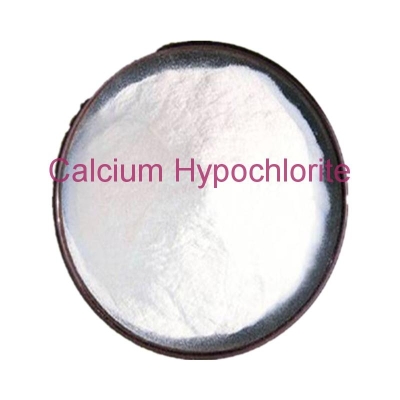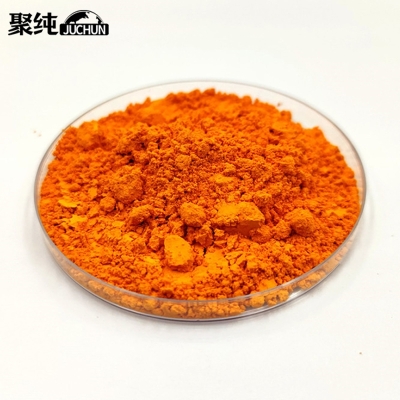-
Categories
-
Pharmaceutical Intermediates
-
Active Pharmaceutical Ingredients
-
Food Additives
- Industrial Coatings
- Agrochemicals
- Dyes and Pigments
- Surfactant
- Flavors and Fragrances
- Chemical Reagents
- Catalyst and Auxiliary
- Natural Products
- Inorganic Chemistry
-
Organic Chemistry
-
Biochemical Engineering
- Analytical Chemistry
- Cosmetic Ingredient
-
Pharmaceutical Intermediates
Promotion
ECHEMI Mall
Wholesale
Weekly Price
Exhibition
News
-
Trade Service
▎The content team editor of WuXi AppTec.
Since the outbreak of the new crown virus for more than a year, scientists and clinicians have been wondering who are more likely to be infected with the new crown virus and who are more likely to get worse after infection
.
Some factors, such as men, older age, obesity, and existing underlying diseases, will increase the severity of the disease
.
But these still cannot explain the various changes in the severity of the illness
.
There is another risk factor that cannot be ignored, and that is heredity
.
In order to understand how genetic factors play a role in the risk of COVID-19 infection and the severity of COVID-19 symptoms, thousands of scientists and clinicians around the world quickly established a large international cooperation network shortly after the outbreak, namely "COVID- 19 Host Genetics Initiative" (COVID-19 Host Genetics Initiative), to collect, share and analyze data together
.
Today, this international project published the latest results in the top academic journal "Nature", revealing 13 new genomic regions (sites) related to the susceptibility to the new crown and the severity of the disease
.
In this study, the scientists compiled 46 groups of studies, covering 19 countries in East Asia, South Asia, Africa, America, Europe, Africa, the Middle East and other regions, including people of different ancestry, involving nearly 50,000 new crown patients.
, And 2 million people as a control
.
These COVID-19 patients include those who have been diagnosed with mild symptoms, those who have severe symptoms and need to be hospitalized, as well as those who are critically ill or even died as a result
.
According to the difference in severity, the researchers carried out three genome-wide association meta-analysis and found 4 sites related to the susceptibility of the new coronavirus and 9 sites related to the severity of new coronary pneumonia
.
The researchers pointed out that the chromosomal loci identified this time contain some genes that have been found to be associated with autoimmune diseases, inflammatory diseases, or lung diseases in past studies
.
For example, a gene called DPP9, a variant of which increases the risk of severe COVID-19, and the same variant also increases the risk of lung disease characterized by scarring of lung tissue
.
Another genomic mutation in the OAS gene causes the level of the OAS1 enzyme in the blood to drop
.
The role of this enzyme is to digest viral RNA, and a decrease in OAS1 levels will increase the risk of infection, hospitalization, and critical illness
.
A review article published on the same day by Nature pointed out that pharmaceutical companies are already conducting research and development work on this target
.
▲Some sites and potentially related genes related to the susceptibility of the new coronavirus and the severity of the COVID-19 disease (data source: reference [3], drawing by WuXi AppTec's content team) It is worth noting that some of the findings this time Genetic risks only appear in certain populations
.
For example, there are two gene loci related to disease severity that are only found in people of East Asian descent
.
The corresponding author of this research paper and Dr.
Andrea Ganna of the Finnish Institute of Molecular Medicine said that this international cooperation has identified new host genetic factors related to COVID-19 at an unprecedented speed and will continue to collect data to allow analysis to cover The scale and diversity of pedigree are all up to the next level
.
The "COVID-19 Host Genetics Project" is currently underway, and it may bring new insights into how infections cause diseases, and is expected to provide targets for drug discovery or new use of old drugs
.
Reference materials: [1] COVID-19 Host Genetics Initiative (2021) Mapping the human genetic architecture of COVID-19.
Nature DOI: 10.
1038/s41586-021-03767-x[2] Samira Asgari & Lionel A.
Pousaz et al.
, (2021) Genetic clues to COVID susceptibility and severity.
Nature.
Doi: https://doi.
org/10.
1038/d41586-021-01773-7[3] Callaway (2021).
The quest to find genes that drive severe COVID .
Nature, doi: https://doi.
org/10.
1038/d41586-021-01827-w Note: This article aims to introduce the progress of medical and health research, not a treatment plan recommendation
.
If you need guidance on treatment plans, please go to a regular hospital for treatment
.
Since the outbreak of the new crown virus for more than a year, scientists and clinicians have been wondering who are more likely to be infected with the new crown virus and who are more likely to get worse after infection
.
Some factors, such as men, older age, obesity, and existing underlying diseases, will increase the severity of the disease
.
But these still cannot explain the various changes in the severity of the illness
.
There is another risk factor that cannot be ignored, and that is heredity
.
In order to understand how genetic factors play a role in the risk of COVID-19 infection and the severity of COVID-19 symptoms, thousands of scientists and clinicians around the world quickly established a large international cooperation network shortly after the outbreak, namely "COVID- 19 Host Genetics Initiative" (COVID-19 Host Genetics Initiative), to collect, share and analyze data together
.
Today, this international project published the latest results in the top academic journal "Nature", revealing 13 new genomic regions (sites) related to the susceptibility to the new crown and the severity of the disease
.
In this study, the scientists compiled 46 groups of studies, covering 19 countries in East Asia, South Asia, Africa, America, Europe, Africa, the Middle East and other regions, including people of different ancestry, involving nearly 50,000 new crown patients.
, And 2 million people as a control
.
These COVID-19 patients include those who have been diagnosed with mild symptoms, those who have severe symptoms and need to be hospitalized, as well as those who are critically ill or even died as a result
.
According to the difference in severity, the researchers carried out three genome-wide association meta-analysis and found 4 sites related to the susceptibility of the new coronavirus and 9 sites related to the severity of new coronary pneumonia
.
The researchers pointed out that the chromosomal loci identified this time contain some genes that have been found to be associated with autoimmune diseases, inflammatory diseases, or lung diseases in past studies
.
For example, a gene called DPP9, a variant of which increases the risk of severe COVID-19, and the same variant also increases the risk of lung disease characterized by scarring of lung tissue
.
Another genomic mutation in the OAS gene causes the level of the OAS1 enzyme in the blood to drop
.
The role of this enzyme is to digest viral RNA, and a decrease in OAS1 levels will increase the risk of infection, hospitalization, and critical illness
.
A review article published on the same day by Nature pointed out that pharmaceutical companies are already conducting research and development work on this target
.
▲Some sites and potentially related genes related to the susceptibility of the new coronavirus and the severity of the COVID-19 disease (data source: reference [3], drawing by WuXi AppTec's content team) It is worth noting that some of the findings this time Genetic risks only appear in certain populations
.
For example, there are two gene loci related to disease severity that are only found in people of East Asian descent
.
The corresponding author of this research paper and Dr.
Andrea Ganna of the Finnish Institute of Molecular Medicine said that this international cooperation has identified new host genetic factors related to COVID-19 at an unprecedented speed and will continue to collect data to allow analysis to cover The scale and diversity of pedigree are all up to the next level
.
The "COVID-19 Host Genetics Project" is currently underway, and it may bring new insights into how infections cause diseases, and is expected to provide targets for drug discovery or new use of old drugs
.
Reference materials: [1] COVID-19 Host Genetics Initiative (2021) Mapping the human genetic architecture of COVID-19.
Nature DOI: 10.
1038/s41586-021-03767-x[2] Samira Asgari & Lionel A.
Pousaz et al.
, (2021) Genetic clues to COVID susceptibility and severity.
Nature.
Doi: https://doi.
org/10.
1038/d41586-021-01773-7[3] Callaway (2021).
The quest to find genes that drive severe COVID .
Nature, doi: https://doi.
org/10.
1038/d41586-021-01827-w Note: This article aims to introduce the progress of medical and health research, not a treatment plan recommendation
.
If you need guidance on treatment plans, please go to a regular hospital for treatment
.







